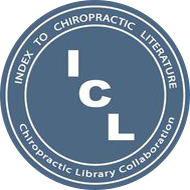Purpose: To compare the effect of two learning opportunities, clinician feedback and video self-assessment, on 5th-year chiropractic students’ patient communication skills, specifically those required for history taking.
Methods: A cohort of 51 final-year students was divided into two groups. The first group received immediate feedback from a clinical supervisor following a history-taking encounter with a patient. The second group performed self-assessments of their videotaped history-taking encounter.An end-of-year Viva Voce examination was used tomeasure the effectiveness of the students’ history-taking skills, using two subscores, one for behavior and another for content, as well as an overall total score. An unpaired t -test was performed to determine whether any significant difference occurred between the two groups of students. Each group was then subdivided into two subgroups based on gender, and a two-way analysis of variance was performed to determine whether the type of feedback or the students’ gender had any significant effect on the outcome of the Viva Voce.
Results: There were no significant differences between the two groups of students in terms of their final scores in the Viva Voce. After dividing each group into their gender subgroups and further analysis of the results, neither the mode of feedback nor the students’ gender had any significant effect on the outcome of the Viva Voce.
Conclusion: This study suggests that, for a mixed cohort, video self-assessment and clinician feedback are equivalent in their ability to enhance students’ communication skills relating to history taking.
This abstract is reproduced with the permission of the publisher; click on the above link for free full text.
|
